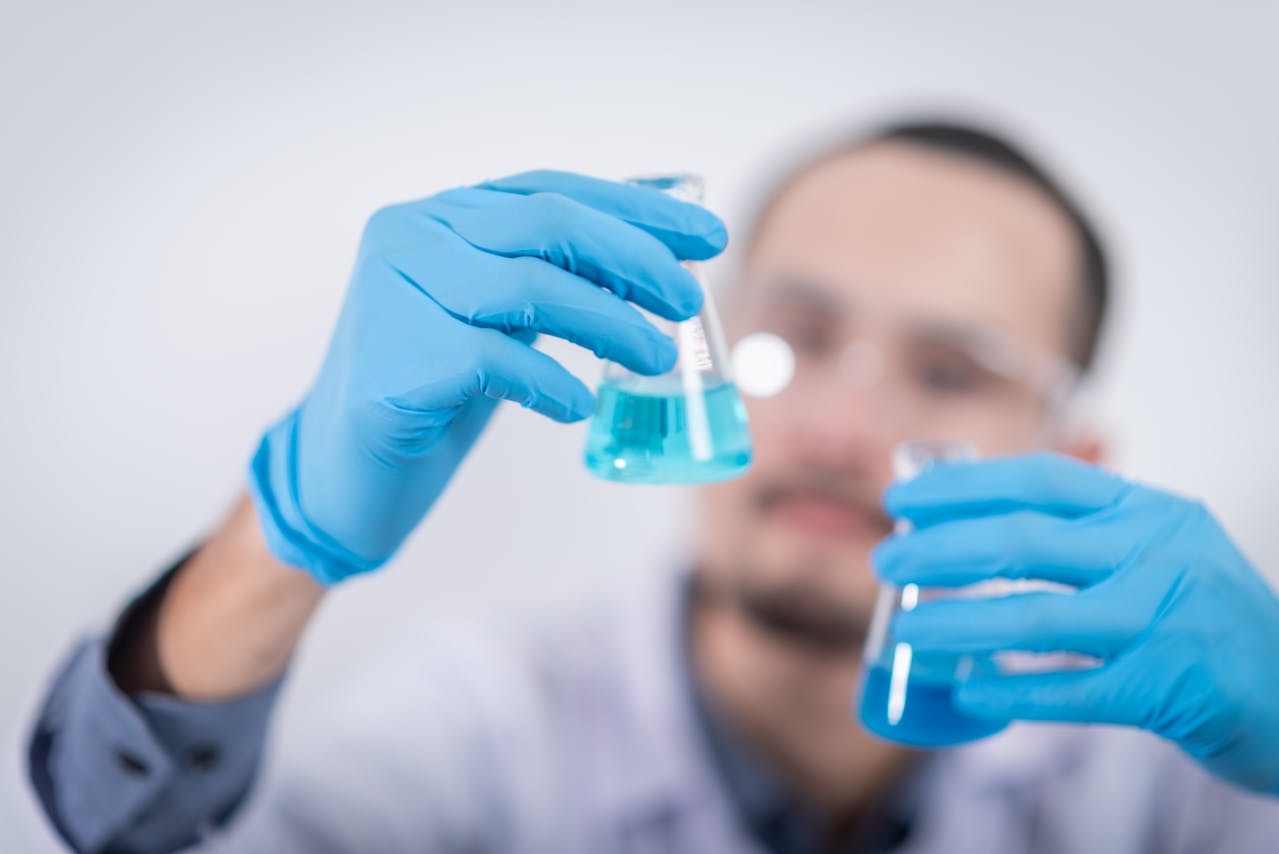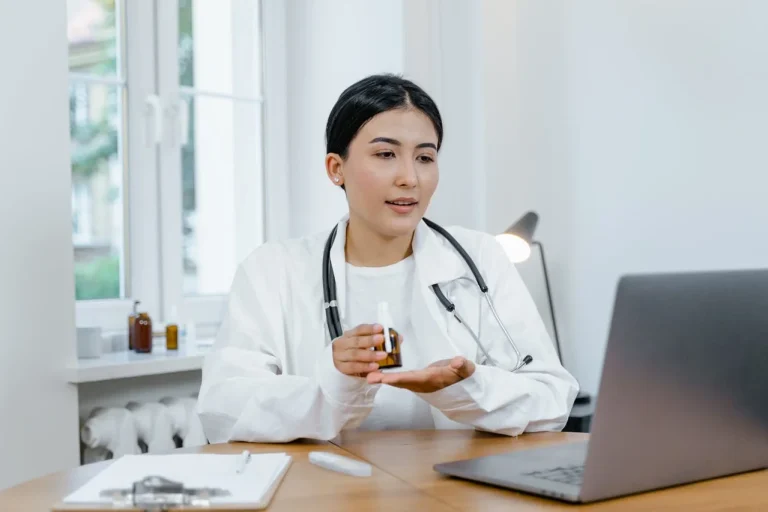
Introduction
The healthcare industry is undergoing a significant transformation due to innovative biotechnological discoveries and digital-first strategies. These developments are causing medical care to shift from traditional reactive models to highly efficient, customised, and proactive systems. Digital-first Healthcare & Biotech emphasises wearable technologies, telemedicine platforms, virtual consultations, and AI-powered diagnostics to empower patients and physicians.
At the same time, biotechnology has broadened the scope of what is possible, from gene editing and regenerative medicine to improved vaccines and novel therapies for challenging illnesses. Together, these elements are forming an environment where biology and technology meet, creating new opportunities for longer, healthier lives. This article explores the ways in which biotech and digital-first healthcare are transforming contemporary medicine around the world.
The Shift to Digital-First Healthcare
Digital-first Healthcare & Biotech involves more than just offering telemedicine as a replacement; it involves a fundamental shift in the way that treatment is delivered. Patients of today need accessibility, usability, and real-time communication with providers. This requirement has led to a rise in investment in digital platforms, mobile health apps, electronic health records (EHRs), and remote monitoring systems.
Health organisations now realise that using these technologies improves patient happiness while reducing operating expenses. The focus has changed from infrequent visits to continuous care through the application of data-driven insights. With the widespread use of wearable technology and health-tracking applications, patients are actively managing their health daily, making it more difficult to discern between work and personal life.
Telemedicine and Virtual Care
The COVID-19 pandemic sparked the global adoption of telemedicine, but its advantages extend far beyond crisis management. Virtual consultations allow people in underserved or rural areas to get professional care by eliminating geographic limitations. In addition to video chats, telemedicine platforms provide secure messaging, digital prescriptions, and remote diagnostics. Compared to in-person visits, patients save time and money, and hospitals may be able to manage resources more effectively.
The rapid growth of services like virtual physiotherapy, telepsychiatry, and dermatology shows that telemedicine can manage a variety of medical needs. The continuous advancement of 5G networks and internet connectivity will further enhance the reliability and quality of these services. Virtual care is not replacing traditional medicine; rather, technology is transforming the way that accessibility, affordability, and inclusiveness are achieved in healthcare.
Role of Artificial Intelligence in Healthcare
Artificial intelligence (AI), which is transforming clinical outcomes and administrative efficacy, is the cornerstone of digital-first healthcare. AI-powered diagnostic tools analyse genetic data, pathology slides, and imaging scans with unprecedented accuracy. The ability of algorithms to recognise patterns that are invisible to human eyes reduces errors and enables early disease diagnosis. Predictive analytics can also be used by clinicians to anticipate patient decline and recommend timely treatments.
Staff workers may now focus more on patient care because AI-powered technologies have automated administrative duties like billing, claim management, and appointment scheduling. The potential to provide individualised treatments based on genetic and lifestyle data is another promising outcome of using AI. As AI systems become more transparent and ethical, they will play a key role in transforming the way healthcare is provided.
Wearables and Remote Monitoring
Wearable technology has advanced from simple fitness trackers to complex health monitoring devices that can record heart rhythms, blood pressure, oxygen levels, and even glucose levels. These devices provide continuous monitoring, helping patients manage chronic conditions and providing physicians with real-time data. Remote monitoring reduces hospital readmissions, particularly for patients recovering from surgery or managing long-term diseases like diabetes and heart disease.
Insurance companies are increasingly providing incentives for wearable technology because they recognise the potential for preventative treatment and reduced expenses. Data integration with EHRs allows doctors to quickly access comprehensive patient profiles. The combination of professional supervision and self-tracking has ushered in a new era of patient empowerment, where individuals actively control their health with the assistance of experts.
Digital Health Records and Interoperability
Electronic health records (EHRs), which provide centralised access to patient data, are the cornerstone of digital-first healthcare. The challenging aspect is interoperability, or different systems’ ability to interact and comprehend shared data. Biotech companies, insurers, and healthcare providers should work towards standardised platforms that facilitate seamless information integration across institutions.
Achieving this goal reduces test duplication, enhances continuity of treatment, and empowers individuals to manage their medical records. Blockchain technology is also being researched for secure, unreadable documents. Patients can transfer between locations or providers with enhanced interoperability without losing crucial data. This networked structure not only boosts productivity but also lays the foundation for global, data-driven health research.
The Rise of Biotechnology
While digital-first Healthcare & Biotech places a higher priority on technology-driven delivery, biotechnology aims to use biology to treat and prevent diseases. Advances in genetic engineering, synthetic biology, and molecular medicine are creating previously unimaginable therapeutic possibilities.
Biotech innovations include lab-grown tissues for regenerative medicine, CRISPR-based gene editing for genetic disorders, and CAR-T cell therapy for cancer. mRNA-based vaccinations, which gained popularity during the pandemic, have shown promise in preventing cancer and a number of other infectious diseases. Biotechnology affects not only medicine but also agriculture and the environment, fostering better ecosystems that indirectly improve human well-being. The biotech revolution is a prime example of humanity’s growing ability to control life at the molecular level.
Personalised and Precision Medicine
Personalised medicine is one of the biggest outcomes of biotechnology. Instead of employing a one-size-fits-all approach, medicines are now tailored to each patient’s own genetic profile, lifestyle, and environment. Thanks to advances in genomic sequencing, doctors can now predict the likelihood of sickness, choose the appropriate drugs, and minimise adverse effects. Precision oncology, for example, identifies specific tumour mutations to provide tailored therapies that dramatically improve survival rates.
Pharmacogenomics, the study of how genes impact drug response, helps designers create safer medications. With this customised approach, which extends beyond treatment to prevention, people are empowered to make lifestyle changes based on their unique health risks. Personalised medicine is the future of healthcare since it is targeted, efficient, and closely aligned with each patient’s biology.
Genomics and Gene Editing
Medical research has changed dramatically as a result of genomics’ ability to completely understand human DNA and its relationship to health. Whole-genome sequencing’s growing speed and affordability are making widespread screening feasible. Researchers can correct mutations that cause diseases like sickle cell anaemia and muscular dystrophy by using gene editing techniques like CRISPR-Cas9.
These tools have the potential to improve agriculture and save the environment, but their most important applications are in healthcare. Discussions about ethics are still going on, especially in light of germline editing and designer babies. However, therapeutic gene editing is gaining traction as a treatment option for severe diseases. To ensure safety and encourage innovation, regulations are evolving. The foundations of the biotech revolution—genomics and gene editing—are changing the landscape of medical potential.
Regenerative Medicine and Stem Cells
Regenerative medicine seeks to replace or repair damaged organs and tissues through the use of stem cell research. Stem cells are extremely helpful in treating wounds, degenerative diseases, and even organ failure due to their remarkable ability to develop into numerous cell types. Researchers are investigating lab-grown organs, 3D bioprinting of tissues, and stem cell-derived therapies for conditions like Parkinson’s disease and spinal cord injuries.
Advances in this field could eventually eliminate the need for organ donors. Regenerative medicine also focuses on self-healing, where biologically inspired treatments promote the body’s natural ability to restore itself. Regenerative medicines offer millions of patients with diseases that were previously believed to be incurable a great hope, despite ongoing concerns about safety, ethics, and scalability. The biotech revolution is making regeneration a medical reality.
Biotech in Pharmaceuticals and Drug Development
Biotechnology is revolutionising the research, development, and distribution of pharmaceuticals. The drug discovery process, which once required years of trial and error, has accelerated thanks to AI, machine learning, and biotech techniques. Before performing physical trials, businesses might save time and money by digitally modelling medication interactions. The use of monoclonal antibodies and other biopharmaceuticals to treat autoimmune diseases and cancer is growing. Formulations for personalised medicine supported by pharmacogenomic data ensure greater effectiveness and fewer side effects.
The development of biologics and biosimilars has expanded the therapy options for chronic and rare diseases. Partnerships between biotech firms and pharmaceutical giants are growing, creating ecosystems that combine innovation and scalability. Instead of relying solely on chemistry, drug development today incorporates biology and technology.
Biotech and Global Health Challenges
Biotechnology can efficiently address a number of global health challenges, including antibiotic resistance and pandemics. mRNA platforms’ adaptability has allowed for the rapid development of vaccines in response to emerging threats. Researchers are also genetically altering microorganisms to create new antibiotics to counter the growing threat of drug-resistant diseases. In underdeveloped nations, biotechnology is improving the diagnosis of HIV, TB, and malaria by providing scalable and affordable medicines.
Agricultural biotechnology indirectly enhances health outcomes by increasing food security. However, equitable access remains a problem; rich nations shouldn’t be the only ones with access to these therapies. International collaboration, funding sources, and legal frameworks will be crucial to ensuring that biotech medicines reach the most disadvantaged areas and create a more equitable global health environment.
Ethical Considerations and Regulations
Ethical concerns are becoming increasingly significant as biotech and digital-first Healthcare & Biotech advance. Concerns about fair access, data privacy, and genetic alteration dominate public discourse. Should gene editing be allowed for non-medical advancements? How can patient data security in digital ecosystems be ensured? Governments and international organisations are actively developing laws to strike a balance between innovation and responsibility.
The cost of advanced treatments, informed consent for genetic testing, and AI algorithm openness are all topics of ongoing debate. In the absence of clear ethical standards, a drop in public trust could slow adoption. Therefore, ethics must be integrated into research, policy, and implementation to ensure that technological growth is consistent with human dignity and societal values.
Future of Digital-First Healthcare and Biotech
Looking ahead, the convergence of digital-first Healthcare & Biotech heralds a time of unheard-of medical advancement. Virtual reality may be used to train surgeons, while nanomedicine administers drugs at the cellular level. Global health ecosystems may soon depend on real-time data networks powered by biotechnology, AI, and networked devices.
Collaboration between biotech, technology, and healthcare providers will be essential to maximise impact. However, affordability, inclusivity, and ethical responsibility must be prioritised to steer progress. The combination of digital and biotech is not only a medical revolution but also a sociological one that is changing people’s perceptions of health, sickness, and longevity. Future potential will be infinite if innovation remains patient-centred.

I am a passionate blogger with a BBA degree, blending my academic background in business with a love for storytelling and sharing ideas. Whether exploring the latest trends, offering insightful tips, or diving into thought-provoking topics, I strive to create engaging content that informs, inspires, and resonates with readers. Join me on this journey as I bring fresh perspectives and a unique voice to every post!









